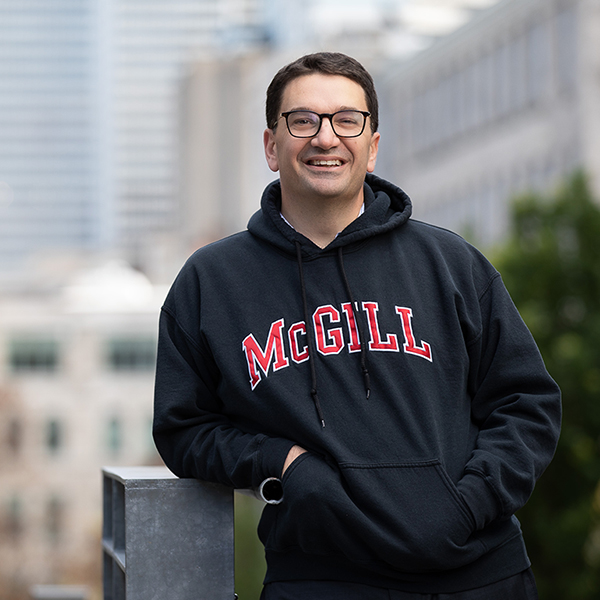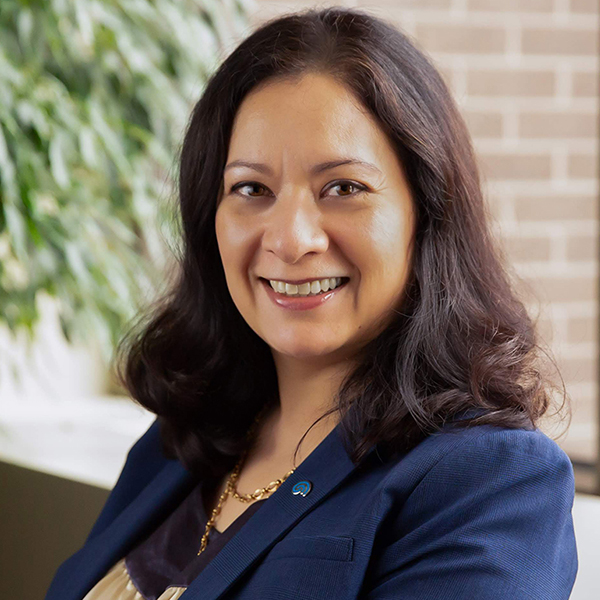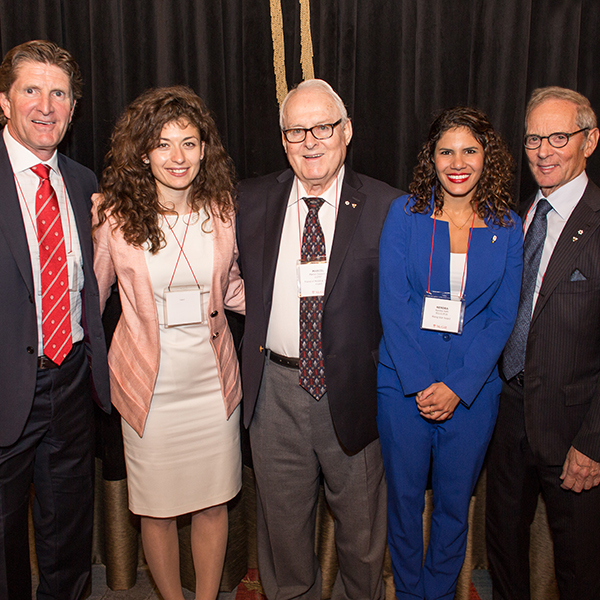Joey Odman, BEng’11, had a front-row seat to McGill campus at F.A.C.E., his elementary and high school on University Street. Early on, he knew he wanted to attend McGill, study chemical engineering, and play varsity football.
Odman did all that and much more at McGill, including serving as captain for several engineering student design teams. Now a director of development at a real estate management and development company, he has remained active in the McGill community as a volunteer. In Fall 2022, Odman began his term as president of the McGill Alumni Association (MAA), which supports the university’s 300,000 alumni around the world in more than 180 countries. It’s also the parent organization for McGill’s global network of regional and constituent-based alumni groups. Odman recently spoke to the McGill News about his new role.
How was your time at McGill?
I did so many different things and was involved in so many ways, which made my time really fun. I made a lot of my friends through sports and the athletics complex where I worked a couple of jobs. I worked on the hybrid racing team in engineering, which at the time didn’t really exist. Back then there was an engineering gas car team, but hybrids and electric vehicles weren’t really a thing yet. The team I was a part of ended up being the first to build a hybrid electric race car. My time at McGill was very enriching because I saw so many different aspects of the university and it was a time where I developed really close friendships with a lot of people.
Why did you take on the position of MAA president?
Volunteering has always been important. It’s ingrained in me by my mom, who was always of the opinion that if you could give some money, you’d give money, if you could give some of your time, you give time – if you could give both, well you would give both. I started volunteering with McGill when I was there as a student and eventually landed on the MAA board. Becoming MAA president became an opportunity to continue volunteering with McGill but in a way where you get to see behind the curtain on certain things and get a better understanding of the inner workings of an institution. And then, how can you as an individual help influence because that’s really what the alumni association has – to try to help guide this giant ship that’s floating down the ocean as an institution. That’s where it became an interesting opportunity.
What will the MAA focus on over the next two years of your presidency?
The three pillars of the MAA’s strategic plan: giving, outreach and EDI (equity, diversity, and inclusion). Giving, not just in financial terms, but also giving time and other things like that. How can we give back to the University and expand a bit what that means?
On the outreach side, I think there are two things: how do we better connect to the 300,000 alumni that we represent, and how do we expand that base, because it’s not 300,000 people who are still connected to McGill. So how do we increase that?
A lot of effort has been made to make sure that we have an EDI lens in everything that we do, whether that’s events, awards, outreach, giving, or how we connect with the university and alumni. I think what EDI meant 10 years ago in society, is not what we would consider it to be today. The framework and strategies have changed and evolved, so how do we continue to make things better moving forward. There are many aspects to EDI that are often unfortunately considered secondary to the primary objective, which is fair treatment and inclusivity for all. Something as simple as if we do an event and it doesn’t have wheelchair access, is that completely inclusive? The short answer is no, it’s not. But that’s not the first instinct when people think about EDI. And I think one important aspect is making sure that when we do speak about EDI, we speak about it in all of its forms.
How can alumni serve as a valuable resource to current students and young alumni?
There are a lot of different ways to connect. It really depends on where someone is in the world, in their career, and how much time they have. There’s probably a regional McGill alumni group or constituent [affinity] group that exists in your region or close to it. Getting in touch with them is a good way of seeing what’s going on in your region. There’s involvement at varying levels of boards. One of my personal favourites is everything that has to do with mentorship. That’s how I started a lot of my volunteering at McGill. There are a ton of mentorship opportunities: You can reach out to different faculties, departments, facilitated by McGill University Advancement. When it comes to alumni, McGill has open arms for anybody to participate in the way that they see fit with the time they have to volunteer. There are many opportunities to give back to the university in different ways.
What are the benefits of staying connected to the McGill alumni network?
What it really comes down to is the MAA is a giant network of people that have gone through an institution and still want to feel connected to it and to fellow alumni. Whether it’s amongst a small group of recent graduates who have all been friends or someone 20 years your senior who gives you advice on what you are trying to do now in your career, I think that’s the beauty of it: there’s a bit of everything for everyone depending on what you’re looking for.


